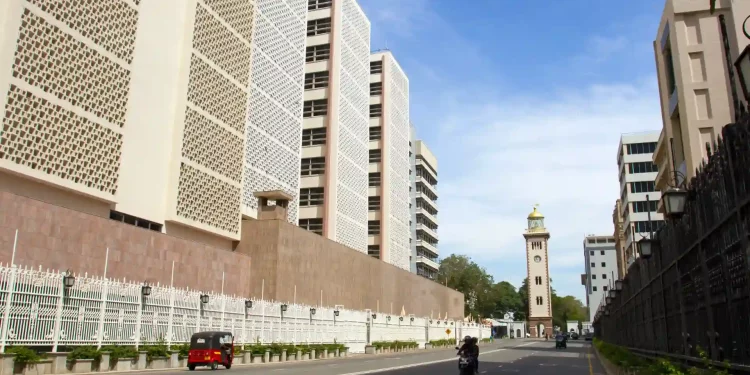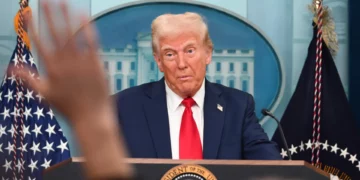The Sri Lanka Central Bank governor stated that the nation may steadily relax the currency band as the inflows improve since the country requires a supple exchange rate for inflation targeting.
Sri Lanka Central Bank’s monetary policy transmission is finally having an effect on the rising inflation and is expected to reduce by 4%-5% by the end of 2023 says the central bank governor Nandalal Weerasinghe. The country’s inflation rate is expected to come down in the advancing months after reaching nearly 70%.
Weerasinghe also added that the consumer price gains will continue on the disinflation path at the CT CSLA investor forum in Colombo on Monday. The central bank governor also added that the nation may steadily relax the currency band as the inflows improve since the country requires a supple exchange rate for inflation targeting.
The Sri Lankan economy was struggling after a baffling uproar in the government causing economic shrinkage of around 9.2% this year. The South Asian economy had increased borrowing costs by 950 basis points this year, taking the key rate to 15.5% as inflation swelled to become Asia’s fastest, reports Bloomberg.
Prices, however, cooled in October for the first time in a year amid tighter monetary policy and improving domestic supply conditions. Sri Lanka slashed its fuel prices in the month of October by 40 rupees amidst the economic instability. Early 2022 saw the country fighting a fuel and food crisis that led to massive national protests that resulted in the dethronement of President Gotabaya Rajapaksa.
The nation’s stocks, bonds, and currency plunged earlier this year and output shrank the most in April-June, marking the least in the past two years. The Sri Lankan rupee declined 0.7% reaching 369.59, the lowest in more than six months. Sri Lanka planned to join again with lenders within the next two weeks to guarantee a deal that would make debt sustainable.
The nation had about $12.6 billion in outstanding bonds owed to global funds; it owes roughly a corresponding amount to multilateral lenders and bilateral creditors. Aid from other countries, repurposed funds from multilateral exports, lenders, remittances, and all these import controls have helped steady Sri Lanka’s finances in the short run. The nation’s forex stockpile rose to $1.78 billion in September from $1.72 billion earlier.
Sri Lanka’s Colombo Consumer Price Index has stabilized, which was seen in the National Consumer Price Index in October and the CCPI is expected to show a similar trend in the month of November. “The CCPI will continue on the disinflation path. We started the disinflation path earlier than most people expected”, says Weerasinghe, Sri Lanka central bank governor.
“The central bank has more space now with monetary aggregates coming down, 2023 will be a year of recovery for Sri Lanka,” said Weerasinghe adding that the monetary authority wants to encourage the lenders to bring down the market rates as the inflation reduces. The bank will also be willing to support the ‘liquidity stresses ‘ of lenders that was a result of a contracting economy.
Debt restructuring will be the next line of focus for the nation and the local authorities are currently in discussion with Paris Club and non-Paris Club members, said Weerasinghe. The government also wants to secure International Monetary Fund board consent for a bailout program in the month of January and having it in December would be too tight according to the Sri Lankan Central Bank governor.
The country would be able to rebuild its reserves with the International Monetary Fund (IMF) program which would also help in improving the lending by the Asian Development Bank and the World Bank. The country’s foreign exchange reserves stooped to $1.70 billion during the last month from $1.77 billion in October when it increased as the government used it to pay for food and fuel.

















